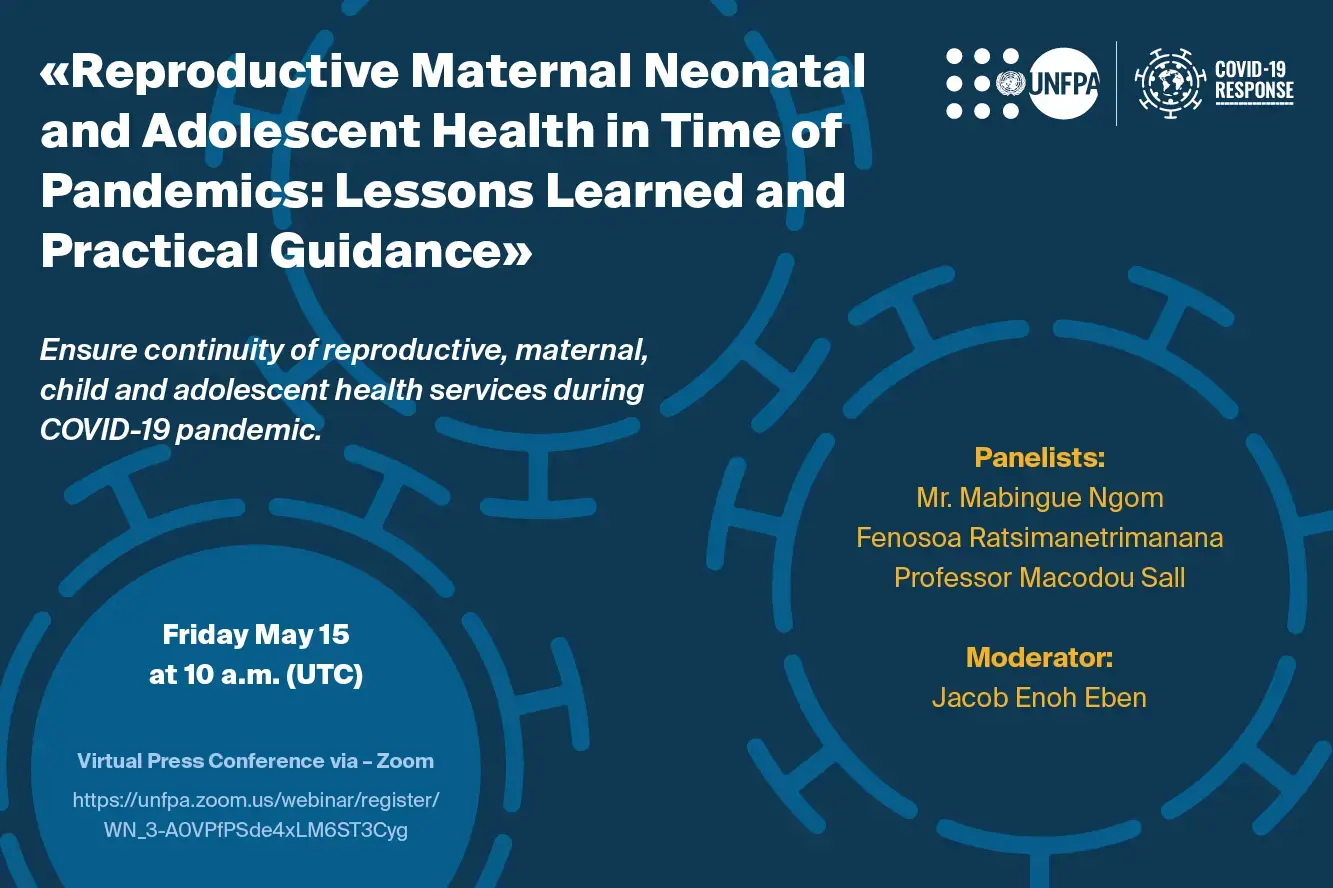MEDIA ADVISORY
“REPRODUCTIVE, MATERNAL, NEONATAL AND ADOLESCENT HEALTH IN TIMES OF PANDEMICS: LESSONS LEARNED AND PRACTICAL GUIDANCE”
Ensure continuity of reproductive, maternal, child and adolescent health services during COVID -19 pandemic.
WHAT: UNFPA Regional Office for West and Central Africa (WCARO) has produced a publication entitled: “REPRODUCTIVE, MATERNAL, NEONATAL AND ADOLESCENT HEALTH DURING PANDEMICS: LESSONS LEARNED AND PRACTICAL “
This publication is a unique review of lessons learned from major past epidemics, including SARS CoV, HIV / AIDS, Ebola, Zika and MERS CoV, with a focus on how to ensure continuity of reproductive, maternal, infant and adolescent health services during the Covid-19 pandemic.
WHEN: Friday, 15 May at 10 a.m. (UTC) Media and journalists
WHERE: Webinar via -Zoom https://unfpa.zoom.us/webinar/register/WN_3-A0VPfPSde4xLM6ST3Cyg
Once you sign in, 1) Select language of preference; 2) Mute original sound.)
WHO: Mr. Mabingue Ngom, Regional Director, UNFPA West and Central Africa Regional Office;
Fenosoa Ratsimanetrimanana, Regional Advisor on Maternal and Reproductive Health, UNFPA Regional Office for West and Central Africa;
Professor Macodou Sall, Doctor of Public Health in Epidemiology;
Moderator: Jacob Enoh Eben, Regional Communication Advisor
WHY: The new coronavirus (Covid-19) pandemic has now spread to almost every country in the world, with more than 3,000,000 cases and causing more than 200,000 deaths as of April 27, 2020. Covid-19 is the latest in a long list of infectious diseases that have caused devastating epidemics and pandemics throughout history.
This work is a review of the literature of the main epidemics that have occurred in recent decades, in particular SARS CoV, HIV / AIDS, Ebola, Zika and MERS CoVn, and their consequences. Indeed, the impact of the development of the pandemic as currently observed in Europe and the United States of America would be devastating in West and Central Africa. Although some West African countries have put in place measures based on their experience in fighting the 2014 Ebola outbreak, the region includes many countries with insufficiently funded health systems, which will make rapid scale up of the epidemic response difficult.
Often, response measures to these outbreaks have had a negative impact on other health services including maternal, reproductive and child health services. It is essential to recognize the way in which measures to contain epidemics affect women, children and other vulnerable populations in order to initiate effective and equitable alternatives to protect them while ensuring continuity of access to reproductive and neonatal health services.
Contacts: Habibou Dia| Media Specialist, UNFPA WCARO | dia@unfpa.org | Tel: +221 78 620 45 13– Dakar, Senegal


